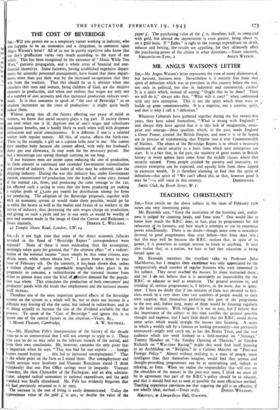SIR,—Is it not high time that some of the direct
economic fallacies revealed in the flood of " Beveridge Report " correspondence were
exposed? None of these is more misleading than the assumption, seemingly taken quite for granted, that " the ultimate effect " of a redistri- bution of the national income "must simply be that some citizens may obtain more, while others obtain less." I quote from a letter in your issue of February 5th. On the contrary, it has, been shown that, unless a violent change of quite improbable magnitude takes place in the propensity to consume, a redistribution of the national income from richer to poorer must raise the level of Affective demand for the popula- tion as.a whole. This stimulates the production of both consumers' and producers' goods with the result that employment and the national income itself increase.
Therefore one of the most important general effects of the Beveridge scheme on the system as a whole will be, not to share out income in a different way leaving all else the same, but indeed to redistribute, and in so doing actually to increase the size of the dividend available for that
process. To speak of the "Cost of Beveridge " and ignore this is to ignore one of the central factors in the situation.—Yours, &c.,


























 Previous page
Previous page